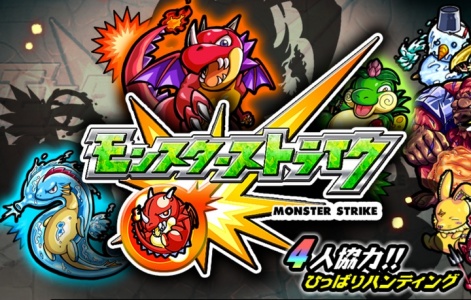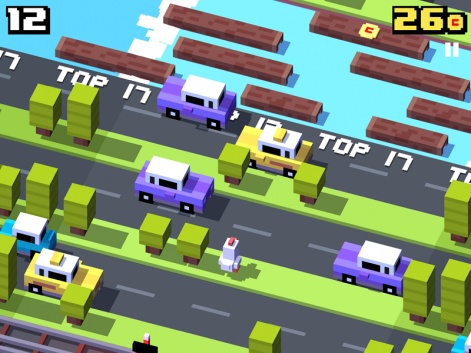Supercell's financials for 2014 - $1.7 billion in revenue - underline the fact that alongside companies such as Tencent, GungHo, King, Machine Zone, DeNA etc - the top of the mobile gaming industry is now nailed down by billion dollar companies.
So:
- Do you think there are still opportunities for well-funded and super-smart start-ups to crack the global mobile games market in the manner that Supercell and GungHo did in 2012 and Machine Zone and King did in 2013?
- Or should companies be more focused on smaller, more niche successes now?
Basically, at a macro level, is the mobile games market now mature?

A games programmer before joining Sony’s early PlayStation team in 1994, he then founded developer Pure Entertainment, which IPO’d and launched a free-to-play online gaming service way back in 1999.
He was also a director of pioneering motion gaming startup In2Games, which was sold to a US group in 2008.
Along the way, he’s been a corporate VP, troubleshooter, and non-exec to a variety of companies and investors in and around the games sector.
Harry was European CEO of Marvelous AQL, a Japanese developer and publisher of social, mobile and console games, known for console games like No More Heroes and Harvest Moon, but now highly successful in the free-to-play mobile and web space in Japan and Asia.
Harry is CEO of Magicave.
The market is wide open for well-funded and smart startups to crack.
By all means target niches, that's a better way to stand out than to create the same product as everyone else, but we're still seeing plenty of great new games coming out that are being hugely successful.
The PC game market was pretty mature when Minecraft came out. The next big thing can come from anywhere.

Obviously the cost of development is getting higher and higher as production values and consumer expectations increase, but there's nothing any of the established companies can do that a new player couldn't (given enough cash).
There's nothing any of the established companies can do that a new player couldn't.Harry Holmwood
I don't think that the strongest companies (maybe with one or two exceptions) are in their position because of their marketing muscle or huge network - they're there because they're making the right games.
Just looking at the Japanese top grossing chart now I see that the previously unassailable Puzzle & Dragons is now number 3 grossing, with our own (yay!) Logres: Goddess of the Ancient at number 2 and Monster Strike in top position.
Two games with very different routes to the top: Monster Strike seemingly coming out of nowhere and growing in record time; Logres starting over three years ago as a PC browser MMO, then steadily increasing in popularity ever since, particularly once it hit mobile.
There's no reason why we can't see similar disruption in the western charts this year.

Oscar Clark has been a pioneer in online, mobile, and console social games services since 1998. He is also author of the book, Games As A Service – How Free To Play Design Can Make Better Games.
Well, as I've written elsewhere I believe that the gold-rush is over.
That means to me that the ability to have an enormous success without experience, great design, superb marketing and some significant investment is highly unlikely. However, that's not the same thing as thinking it's impossible.
As you rightly mention a more mature market tends to be drive teams into either commodities (driving price down - can we go lower than free?) or by creating niches - both of which we have seen in abundance.
I believe the gold rush is over ... but that's not the same thing as thinking enormous success is over.Oscar Clark
However, games aren't like bags of spuds or expensive watches. The entertainment value of a game diminishes over time as we become either more competent or too familiar with the experience.
Players are always looking for something to satisfy them and because this is a subjective medium its always going to be about the next big hit. Or at least that's what I always thought.
The continued presence of games like Candy Crush, Subway Surfer and Clash of Clans more than 2 years later astounds me and demonstrates the effect where we treat such games as living, breathing services growing alongside our players.
Developers need two things to succeed in this more mature marketplace - Laser-Focused Targeting and Aspirational Disruption.
Laser-Focused Targeting is about understanding the specific sub-set of the audience who you are addressing with this game and knowing whether their scale and willingness to pay (or consume ads) will sustain your business plan. That doesn't mean you have to be building games which need multiple billions of dollars of revenue. But you do have to know how you can communicate and convert the people who are going to choose your game as their entertainment of choice.
Aspirational Disruption is about changing the expectations of players and how you communicate it to them in a way which creates a desire to not just play but to become advocates in their own right. This is not always about changing everything often its about taking the familiar experiences into new unexpected areas.
It doesn't even have to be particularly profound. Disruption means that the experience has to be fresh, but players still need to be able to easily understand and communicate why your game fills a gap that no other game has yet filled.
Look at Crossy Roads. On the surface it's just a modernised Frogger game. We get frustrated about the difficulty of creating ever longer runs, but when we do we get to brag about it. Then there are the characters. These are silly, blocky individuals each of which has its own personality and affects your engagement in a way which never fails to make me smile.

Put together with the huge polish and integral humour of the game and it's no wonder that they are making a huge success. But its not something most people would have bet on a year ago.
That success isn't just about its game design and amazing use of video ad monetisation (Unity paid them $3 million in just 3 months on iOS alone) but the marketing was also disruptive. They reached out to PewDiePie through their friends and fans and even put his dog into the game. This was rewarded by an enormous exposure to gaming fans we can't access just through the app store.
Its a real privilege to be partners with those guys. Their respect for players and the player experience is paramount but they also have the kind of Laser-Focused Targeting and ability to deliver Aspiration Disruption.
I think I've learnt a lot from watching them.

Since founding Tag Games in 2006 Paul has built the studio from humble beginnings to become one of the most respected and successful mobile and handheld developers in Europe.
He began a long, and some might say, distinguished, games industry career at legendary developer DMA Design, playing a key role in the development of the GTA series
There is definitely a feeling that the mobile market is starting to mature which is reassuring!
Supercell and King have been a fundamental part of making mobile games more mainstream. The blockbuster movie equivalents of F2P mobile, drawing the spotlight to the market as a whole with bigger marketing budgets, and ever increasing production values.
This is a disruptive industry where anything can happen. Technology, distribution and business models can change everything and very quickly.Paul Farley
The gold rush might be over, but there are still many opportunities for innovation and breakaway successes for others. The 'super smart start-ups' can challenge the mobile giants, and potentially become 'appilionaires'.
It would be very wise to focus on smaller, niche successes. The risks are much higher now, there's a lot to lose no matter whether you're an indie studio or a large publisher.
We understand more now about mobile game success and failures, we analyse player behaviour and trends such as the growth of midcore, but ultimately, it comes down to how you apply everything you know to your own products and marketing.
You need to be well-funded to match the buying power of Supercell but I think you can find disruptive methods of achieving the same outcome by being smart, or just having the resilience to keep trying.
You can build a great team, but it always comes down to the idea and execution, with a healthy dose of good timing and luck to create, or take advantage of, that zeitgeist moment. If creating the next global mobile success was quick, easy and predictable we'd all be out of our jobs!
This is a disruptive industry where anything can happen. Technology, distribution and business models can change everything and very quickly.
Who knows what the next major shift will be? I doubt that the current incumbent will see it coming in time leading to them ultimately losing their dominance and the cycle will repeat again.
I think the mobile games industry has reached maturity for some time now. You look at the Top Grossing app charts and it's been the "usual suspects" at the top for a few years now, with few changes.
For startups, the best bet is niches. That's the approach we are following in 2015. Go after a genre and own it.William D. Volk
Yes, there are opportunities for well-funded and super-smart start-ups to come in and grab share. Look how Machine Zone has come in with Game of War with a massive advert spend featuring Kate Upton. On some of our ad supported titles, we see them grabbing 25% of daily ad inventory or more.
I also believe the triple-A console game publishers are going to show up in a major way. Blizzard's iPad offering, Hearthstone: Heroes of Warcraft … is a masterpiece effort. How long will it be before a triple-A title launches simultaneously on console and mobile? We'll find out soon.
For startups, the best bet is niches. That's the approach we are following in 2015. Go after a genre and own it.
In the super-casual space (one-tap games etc.) media partnerships are going to be key, the cost of customer acquisition via ads exceeds the lifetime value for most super casual games. Of course there will be more Flappy Bird hits out of nowhere, but that's a hard strategy to pull off predictably.
The other niche strategy is to go where they aren't. 'Cult' games, conversion of card games etc. You can be sure Exploding Kittens will make the transition from cards to mobile.
Back to the main question, I still don't see the market leaders being displaced in any major way.
So yes, more mature. Absolutely.
I think the market is mature in the sense that inexperienced teams with little or no capital are extremely unlikely to create a game that achieves a high download or top grossing rank in the stores - yes.
Niche targeting - by aesthetic, genre, device, geography, gender, age, language, culture etc - is a very sensible strategy.Kevin Corti
Does that preclude a "well-funded and super-smart" start-up from achieving this? No.
If you have the cash to build a solid game and to put the infrastructure and live ops in place as well as to do UA and general marketing at scale then of course you can break into the top end of the charts still.
"Mature" the market maybe but that by definition doesn't preclude newcomers from achieving success. The quantum of Wonga that this would require, however, is likely be at 8 figures now.
I think the question you are really asking is about whether it is feasible for younger, less well-funded, less experienced startups to attain commercial success of the level of the established players.
That is much more unlikely (especially in a sustained manner) and, in that case, niche targeting (by aesthetic, genre, device, geography, gender, age, language, culture etc) is a very sensible strategy.
The market is mature. The Top 20 has been fixed for so many months. Will you see newcomers in the market? I am very sure about that.
429 of the original Fortune 500 companies of 1955 are no longer in business.Christopher Kassulke
429 of the original Fortune 500 companies of 1955 are no longer in business today. So what do we learn out of it. You need to adapt or die!
Technology is changing, business models are changing, consumers are changing. I could hardly believe 5 or 6 years ago anyone could beat EA Mobile or Gameloft as mobile games companies.
Now we see several new companies perform better. They are still in business but time has changed. Will Supercell dominate the industry forever. If they adapt they will and I am sure Illka [Paananen, Supercell CEO] will rock further and surprise the industry.
The same happened in the OEM market. In 2010, Nokia was 2x bigger than Apple and 4x bigger than Samsung and they grew faster than either rival. Now they are gone. Today we see again new boys in town like Xiaomi coming from nowhere.

The mobile games market is still big enough for new studios with great and innovative products, perhaps also with new business models.
So let's see perhaps some new boys will be in town already within 12 to 24 months.
There are going to be a lot of changes yet before I would consider calling the market mature.David MacQueen
I definitely wouldn't say it's mature. It's still in a growth phase, records being smashed every quarter.
However, it's definitely maturing, and it's true it's becoming increasingly hard to break into the top apps (but there's plenty of dynamism outside the top 20 or so).
There are going to be a lot of changes yet before I would consider calling the market mature.
Wearable devices, other new categories of connected devices (I still think someone's going to make a success of a microconsole), greater growth in emerging markets will change things around, messaging/social apps like LINE (and now Facebook Messenger) becoming distribution channels.
I think there's a lot of exciting changes going to happen and of course changes mean new winners and old losers. But even when a market matures, it can still have a lot of innovation.

The only really significant change to the music singles charts has been the inclusion of paid downloads (basically the same thing as physical sales) and then more recently the incorporation of figures from streaming services, but it's basically the same thing since circa 1950. However music today sounds nothing like the music of the 1950s.
There can be plenty of dynamism in the content even if the companies (in this case the record labels) have remained the same.
Historically, the games space is one of the most-dynamic markets imaginable: Companies, intellectual properties, and technologies stand and fall almost on a yearly basis.
Like some turbulent alchemist's mixture of the fashion and pharmaceuticals industries, unknown disruptors is the only thing that can be known for sure.
That said, I am the co-founder of a mobile gaming startup that recently raised Series A round investment. So maybe, I'm biased?

Jon Hare is one of Europe's best known creative directors and game designers with over 10 international number one games to his name and nearly 30 years of experience in the games industry.
Jon co-founded and managed the legendary 1980/90s development company Sensible Software, creating games such as Sensible Soccer, Cannon Fodder and Wizball to great critical acclaim and commercial success and has also worked in senior posts in two of the UK's biggest games developer/publishers Codemasters and Jagex.
Since 1999 Jon has been one of the top game design and business development consultants in Europe working for many different publishing and development clients.
His own new company Tower Studios specializes in developing, publishing and licensing games on mobile and digital formats enjoying recent international success with the release of Speedball 2 Evolution and Word Explorer across numerous mobile and digital platforms.
Jon has also been a full BAFTA member for over 10 years, serving on the BAFTA Games Committee and is a regular Chairman of juries for BAFTA Games awards, as well as acting in a mentor capacity for both BAFTA and NESTA.
The market will not be truly mature until the built-in redundancy inherent in all of our products and being controlled by very few big hardware and operating system players disappears.
Endlessly regurgitating the same games and the drop of quality of the average games worker over the last 10 years is hardly a sign of maturity.Jon Hare
Endlessly regurgitating the same games and the drop of quality of the average games worker over the last 10 years is hardly a sign of maturity, more a sign of bloating and a desperation for people to join the party in a by-and-large very amateurish way.
This particular generation of people who dream of Dow Jones Corporations but actually work in free internships or for relatively small beans is massively skewing the market right now and is clearly unsustainable because as soon as these people want to buy a house or have children they realise that the risk is just too great and that the feeling of probable failure is even worse the second or third time round.
Once too many investors lose too much money and this inefficient phase passes and we start to focus on identifying and accelerating only the very best of young talent out there working with modern publishers and distributors on interesting new products that do not have built-in redundancy then we may very well have a mature industry on our hands.
There is still huge scope for growth. Outside of the top-grossing-is-static debate, we see
- PC/console ports to mobile have been successful (FTL, Papers, Please, the Take Two back catalogue, to name a few).
- Mobile paid is successful by its own metrics (The Room, Monument Valley etc.)
- There's a whole tier of mobile-first indie freemium/paidmium which has created successful, sustainable businesses (Imangi's Temple Run, my client Ndemic Creations' Plague Inc, etc).
- Licensed titles are growing (e.g. TinyCo with Family Guy: The Quest for Stuff or Gameloft with Despicable Me: Minion Rush).
In fact, I've been taken aback by the amount of licensing work my firm is seeing in the mobile world.
We can and should expect each of these to grow and, while of course they're influenced by the big macro changes and the (lack of) movement at the top of top-grossing, they don't depend on them.

Jon Hare is one of Europe's best known creative directors and game designers with over 10 international number one games to his name and nearly 30 years of experience in the games industry.
Jon co-founded and managed the legendary 1980/90s development company Sensible Software, creating games such as Sensible Soccer, Cannon Fodder and Wizball to great critical acclaim and commercial success and has also worked in senior posts in two of the UK's biggest games developer/publishers Codemasters and Jagex.
Since 1999 Jon has been one of the top game design and business development consultants in Europe working for many different publishing and development clients.
His own new company Tower Studios specializes in developing, publishing and licensing games on mobile and digital formats enjoying recent international success with the release of Speedball 2 Evolution and Word Explorer across numerous mobile and digital platforms.
Jon has also been a full BAFTA member for over 10 years, serving on the BAFTA Games Committee and is a regular Chairman of juries for BAFTA Games awards, as well as acting in a mentor capacity for both BAFTA and NESTA.
Being successful at development from a standing start now depends on if you want to remortgage your house and sacrifice 3 years of your life to a game that may have a small chance of generating the support and proper funding required to make back the money you have sacrificed.
From the developers' point of view finding success has become like entering the lottery,Jon Hare
The problem with opinions from people who have only worked in game services is that they can naturally make their money from a spread of hundreds or thousands of games and find it hard to relate to the developer's perspective of having nearly all of their creative and financial eggs in one basket...
For developers, their game MUST succeed or financially it is a liability that can take their life backwards.
The kind of market we have now is maturer from the perspective of the service companies and channels as the acquisition of well developed products with minimum resistance or fuss has never been easier.
From the publishers' perspective, it is still all in a massive state of flux rather than maturity.
From the developers' point of view finding success has become like entering the lottery, which I guess is a mature way of an over-corporate hierarchy throwing a sop of an opportunity for success to the eager and downtrodden masses.
Hurray how grown up we all are!



























